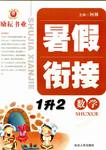题目内容
B [2015 '安庆市五校联考]
Stop wasting your time thinking of reasons for your fail?ures. Instead, realize that the seeds of success were planted within you when you were born. Only you have the power to make those seeds grow.
The seeds and the power to grow them, are contained in the most awesome machine ever created: the human mind. Success is a choice and not a chance. You were born a win?ner. You were born rich. You can be a success if only you make the right choice.
You cannot be successful without first developing your self-confidence. Your level of self-confidence is always based on the degree of control that you are able to exercise over yourself, and thus over your life. People with low self-confi?dence are people who do not believe that they have any pow?er, or responsibility for their lives. They are always victims. They are leaves tossed(摇摆)by the winds of chance blown about with any sudden change in the weather.
You can exercise control over your life only to the degree that you believe you are responsible for everything that hap?pens in your life. Failures think that everything happens by accident and chance. Successful people realize that they are responsible.
Everything happens as a result of something. If you can identify(确定)the cause, you can control the effect. You are responsible for what you choose to think and believe. One generally rises to the level that one expects. You are respon?sible for setting your expectations. Your success is dependent upon your level of confidence.
In all areas of your life, whether they are financial? physical, or spiritual, you are responsible. Once you recog?nize this, accept it, and firmly believe it. You are on the road to success.
5. People with low self-confidence are compared to leaves be?cause they .
A. don't have the power to face their lives
B. are ready to change their minds
C. can't exercise control over themselves
D. are easily affected by windy weather
6. Losers would think that ,
A. they fail only because of bad luck
B. they don't make efforts to succeed
C. success is the result of hard work
D. working hard will lead to success
7. It can be inferred from the fifth paragraph that .
A. what we believe in is the result of creative mind
B. whether we will succeed depends on our attitudes
C. setting our expectations is vital before taking action
D. knowing cause and effect is the key to future success
8. The last paragraph serves as .
A. an introduction to another topic
B. a comparison between two views
C. the proof of the author's points
D. the conclusion of the argument
B [文章大意]本文是一篇议论文,告诉我们每个人生来就是可以成功和富裕的。那么为了获得成功,我们究竟应该怎么做呢?
5.C 细节理解题。根据文章第三段"People with low self-confi?dence are people who do not believe that they have any power* or responsibility for their lives. They are always victims. They are leaves tossed (摇摆)by the winds of chance blown about with any sudden change in the weather."可知,不自信的人是因为他们不相信自己的能力,不相信自己能为自己的生活做主,就如随风飘曳的落叶。故选C项。
6.A 细节理解题。根据第四段的"Failures think that everything happens by accident and chance."可知,失败者总是认为事情的发生都是偶然的。故选A项。
7.B 推理判断题。根据第五段"You are responsible for what you choose to think and believe.,,和"Your success is dependent upon your level of confidence."可知,人的思想和信念决定一切,走向成功需要对自己充满期望和自信。故选B项。
8.D主旨大意题。最后一段总结了全文大意,即自己对自己的生活负责,坚信这一点就会走向成功。故选D项。

 励耘书业暑假衔接宁波出版社系列答案
励耘书业暑假衔接宁波出版社系列答案